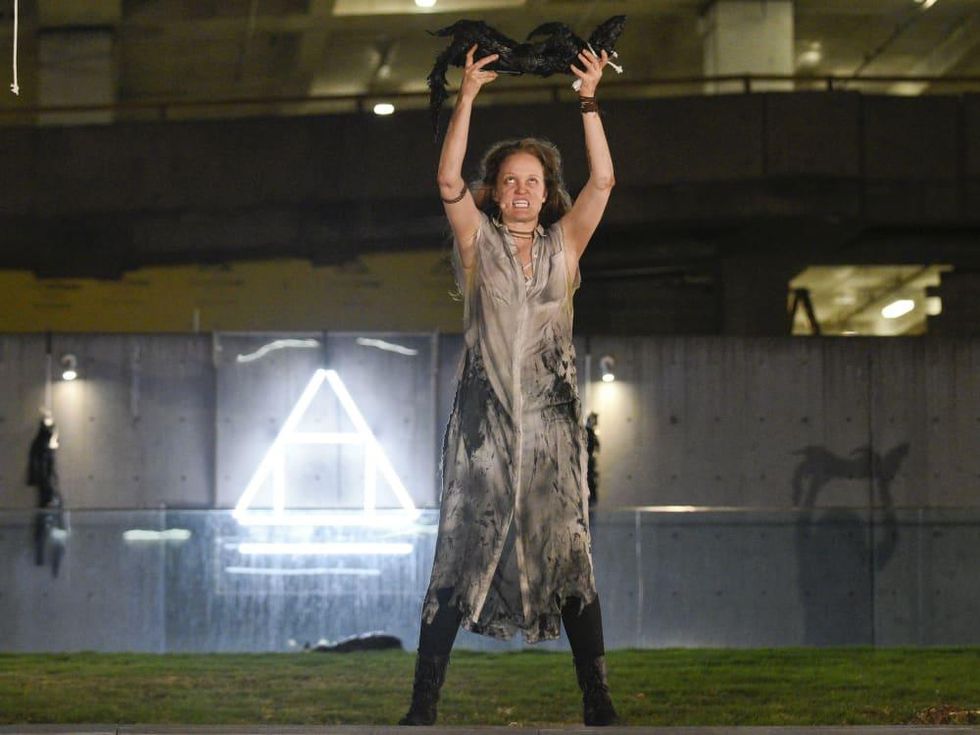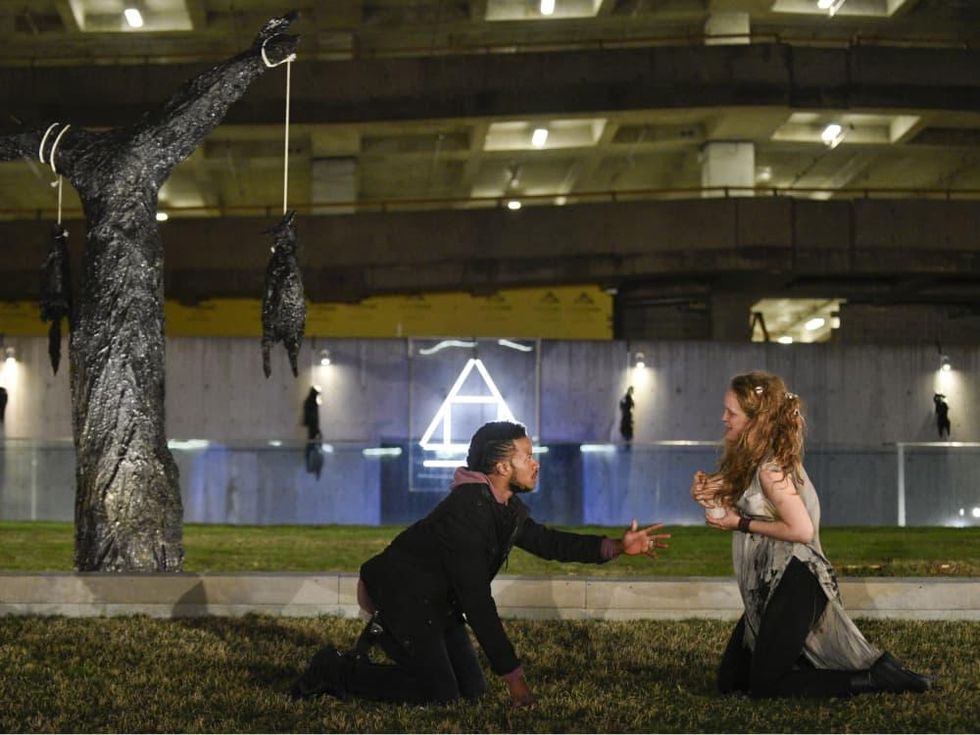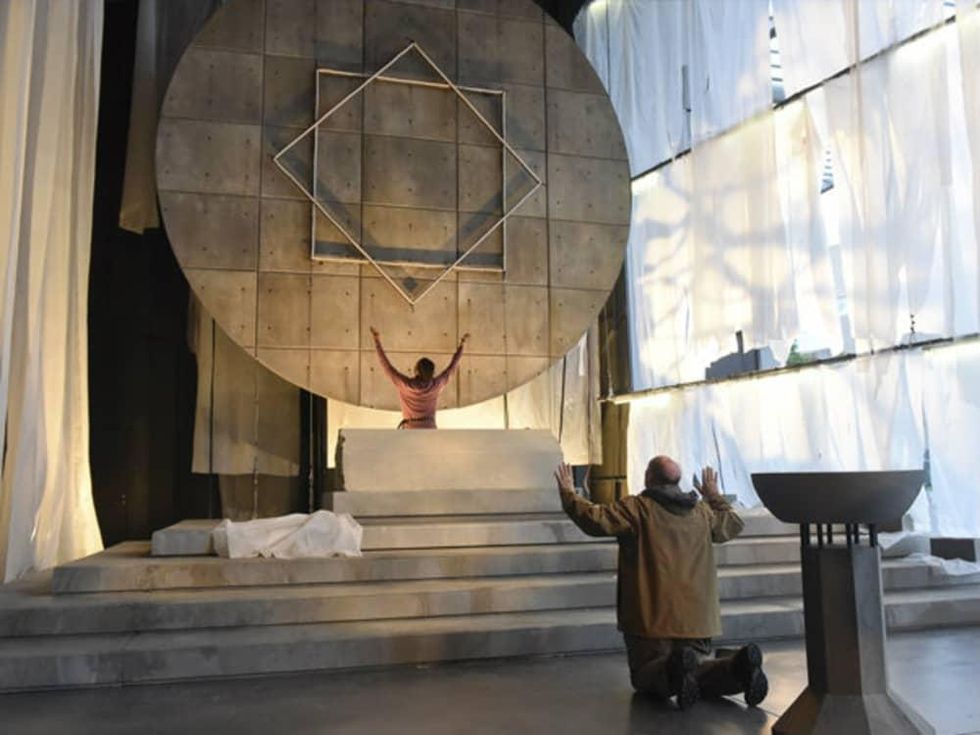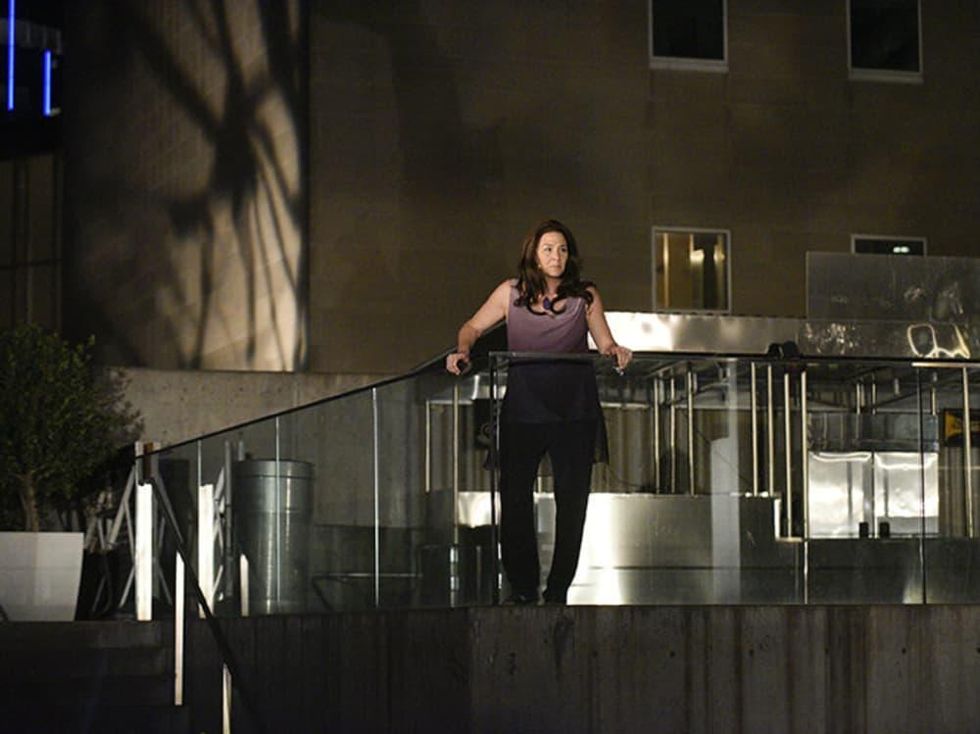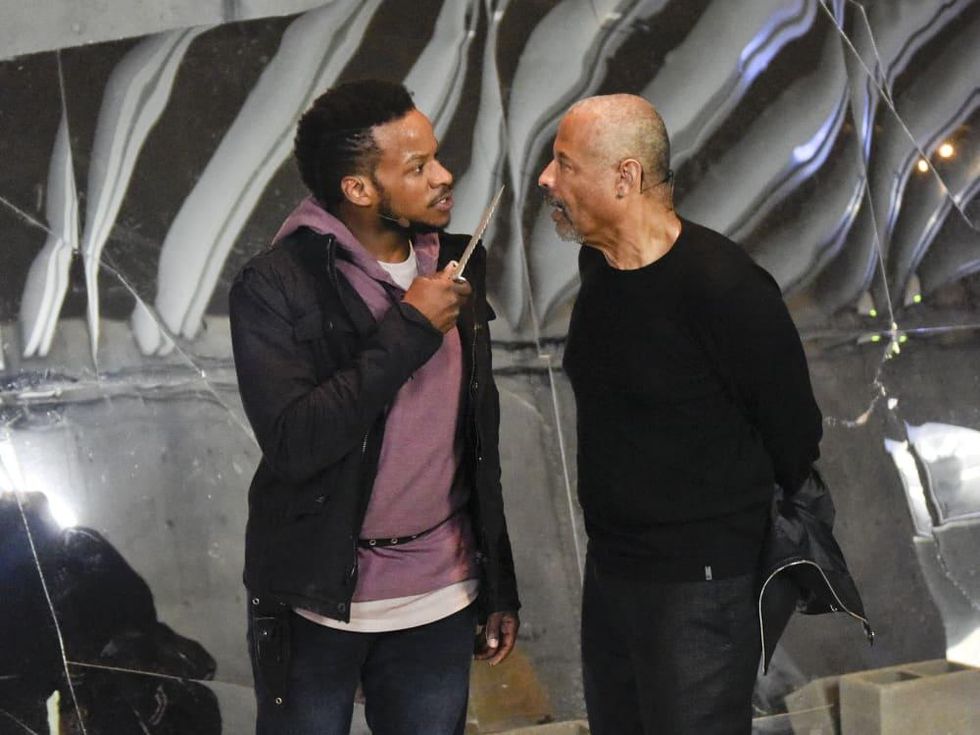Theater Review
Dallas Theater Center puts Greek tragedy — and its audience — on the move
With each Greek tragedy he produces, Dallas Theater Center artistic director Kevin Moriarty has crept further and further away from what audiences might think of as "traditional" theater.
First it was Luis Alfaro's contemporary, tatted-up, prison-set Oedipus El Rey in the Wyly Theatre's sixth-floor studio (the first mainstage production to use that space). Then came a gritty Medea staged underneath the Kalita Humphreys Theater in its scene shop (audiences had to pick their way down a narrow stairway to reach their seats). Now it's his own adaptation of Sophocles' Electra, spread out over Annette Strauss Square in the AT&T Performing Arts Center.
Is it a cool concept, to shuttle the audience to four open-air locations, using headphones and fast-moving ushers to keep both the narrative thread and stray patrons together? Yes. Is this neat staging more interesting than Moriarty's choppy, murkily modernized script? Yes, a hundred times over.
The frisson of excitement begins when you check in and receive a headset and battery pouch, then are herded efficiently onto the Annette Strauss Square stage. Diggle's first set is the tomb of Agamemnon, shrouded in ghostly fabric that flutters in the night breeze (all evening shows begin at 8:30 pm to allow Aaron Johansen's lighting design to be seen). Audience members are advised to wear comfortable clothing and good walking shoes, for in addition to traipsing around the AT&T Performing Arts Center you might spend the show's 90 minutes standing, sitting, or even crouching around the action.
Those headsets allow us to hear the slain king (mellifluously voiced by Alex Organ) issuing orders of revenge to his only son, Orestes (SMU student Yusef D. Seevers, giving a stoic performance). They also pipe in eerie, atmospheric music designed by Broken Chord, and put each word, cry, grunt, and wail into sharp aural focus. This comes in handy as we move down onto the square's grassy lawn, which challenges the actors to sprint across its expanse if they want to emote even remotely close to each other.
The physicality of Moriarty's production is fascinating. Though the actors might be tiny figures spread out under the shimmering lights of downtown Dallas, there's a startling intimacy to their interactions. The small cast, headed with passion by former DTC company member Abbey Siegworth as the avenging Electra, seems remarkably at ease with their unusual environment, which in turn provides an exciting sense of false comfort to the audience.
False, because Moriarty doesn't want you to get comfortable. This is a Greek tragedy, after all, studded with sordid sexual misdeeds, murderous rage, and a tinge of madness.
Siegworth's Electra, dressed in shredded rags and shiny with sweat, twigs poking out of her matted hair (kudos to costumer Claudia Stephens and wig designer David Bova for their equally maniacal and elegant looks), is plotting to take down her mother and new stepfather for killing her dad, Agamemnon. Keep in mind that the late king had previously sacrificed Electra's older sister to help start the Trojan War and bring back his sister-in-law, Helen of Troy (it's a whole ancient Greek family thing).
Queen Clytemnestra (Sally Nystuen Vahle, Medea in Moriarty's famous production) rejoices when she receives word that her son, Orestes, is dead, for he can no longer challenge her for putting her lover, Aegisthus (Tyrees Allen), on the throne. Her daughters, Electra and Chrysothemis (Tiana Kaye Johnson), grieve the loss of their brother, though — surprise! — he and his guardian Paedagogus (David Coffee) are actually the messengers. That does not, as you can imagine, bode well for the king and queen.
All of this moves as quickly as the ushers hope the audience will, flying through Sophocles' story in CliffsNotes fashion and with an ungainly mix of classic speech and modern phrasing. Moriarty's script moves in odd spurts, dwelling overlong on Electra's grief and resentment but building almost no tension before Clytemnestra and Aegisthus' ultimate demise. The third setting where those deeds are done is also the weakest, letting us get up close with the actors yet providing awful sight lines for the climax.
An ethereal use of the reflecting pool in front of the Winspear Opera House closes the play on a serene note. It's at odds with all we have just witnessed, but it does make an awesome background for post-show selfies. And perhaps this time it's the experience, not the play, that's the thing.
---
Dallas Theater Center's production of Electra runs through May 21.
